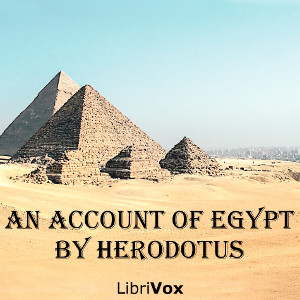
HERODOTUS was born at Halicarnassus, on the southwest coast of Asia Minor, in the early part of the fifth century, B. C. Of his life we know almost nothing, except that he spent much of it traveling, to collect the material for his writings, and that he finally settled down at Thurii, in southern Italy, where his great work was composed. He died in 424 B. C.
The subject of the history of Herodotus is the struggle between the Greeks and the barbarians, which he brings down to the battle of Mycale in 479 B. C. The work, as we have it, is divided into nine books, named after the nine Muses, but this division is probably due to the Alexandrine grammarians. His information he gathered mainly from oral sources, as he traveled through Asia Minor, down into Egypt, round the Black Sea, and into various parts of Greece and the neighboring countries. The chronological narrative halts from time to time to give opportunity for descriptions of the country, the people, and their customs and previous history; and the political account is constantly varied by rare tales and wonders.
Among these descriptions of countries the most fascinating to the modern, as it was to the ancient, reader is his account of the marvels of the land of Egypt. From the priests at Memphis, Heliopolis, and the Egyptian Thebes he learned what he reports of the size of the country, the wonders of the Nile, the ceremonies of their religion, the sacredness of their animals. He tells also of the strange ways of the crocodile and of that marvelous bird, the Phoenix; of dress and funerals and embalming; of the eating of lotos and papyrus; of the pyramids and the great labyrinth; of their kings and queens and courtesans. – Summary by the author

Other Audiobook
Audiobook: Ιστορίαι (Histories) Βιβλίοv 3 (Book 3)
Η Ιστορία του Θουκυδίδη εξιστορεί τα πρώτα 20 χρόνια του πολέμου μεταξύ της Αθήνας και
Audiobook: Mental and Moral Heredity in Royalty. A Statistical Study in History and Psychology
Frederick Adams Woods examined the biographical records and family trees of the great dynasties of
Audiobook: The Island
Written late in his career, Byron’s narrative poem The Island tells the famous story of
Audiobook: Journey into the Interior of the Earth (Version 2)
A German scientist discovers an ancient runic message, which when translated proves to be a
Audiobook: The Advance of Science in the Last Half-Century
Thomas H. Huxley, an English biologist and essayist, was an advocate of the theory of
Audiobook: Is Shakespeare Dead?
A short, semi-autobiographical work by American humorist Mark Twain. It explores the controversy over the
Audiobook: Seven Against Thebes
In this, the only extant tragedy from Aeschylus’ trilogy about the House of Oedipus, Thebes
Audiobook: Reminiscences of Forts Sumter and Moultrie in 1860-’61 (version 2)
Abner Doubleday was a busy man. He rose to be a major general during the
Audiobook: Children’s Life of the Bee
Buzz, buzz, buzz. A fascinating and beautifully written explanation of the life of the honey
Audiobook: Popular History of Ireland, Book 02
Thomas D’Arcy McGee was an Irish refugee and a father of the Canadian confederation. His
Audiobook: Devil’s Paw
A beautiful, intelligent young woman – is she a traitorous spy or a patriot? An
Audiobook: Autobiography of George Dewey
Admiral George Dewey, United States Navy, is best remembered for his victory over the Spanish